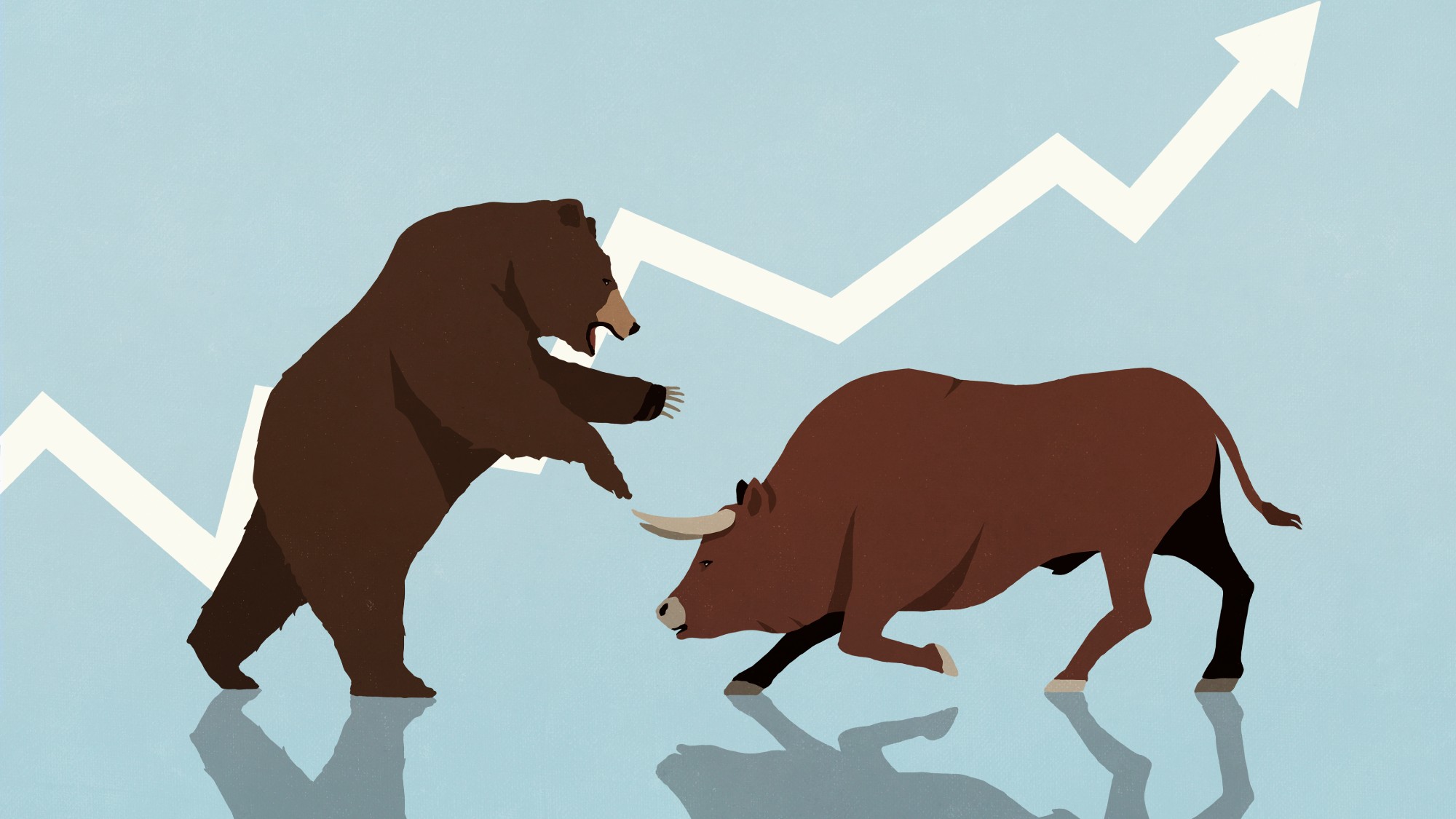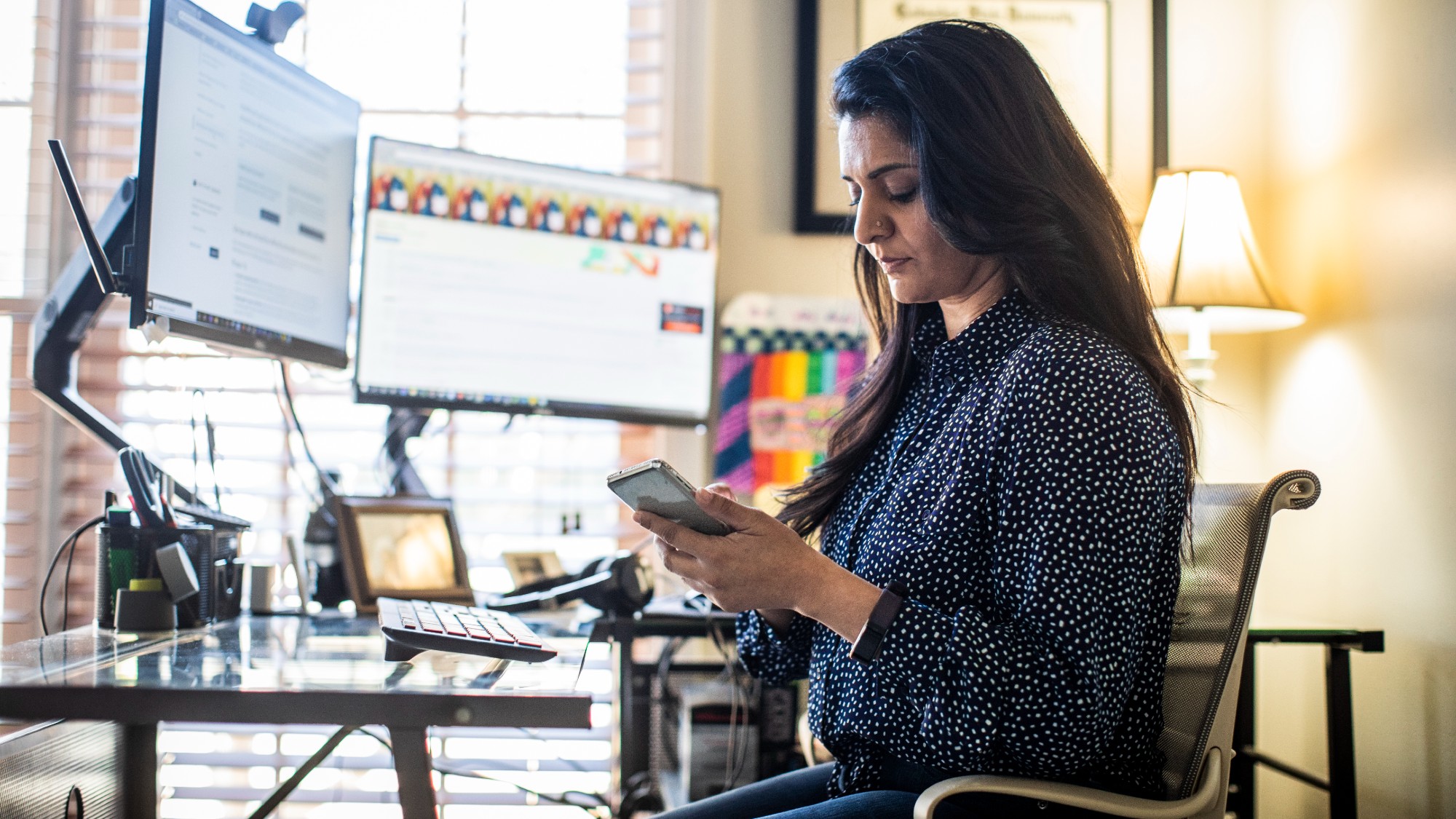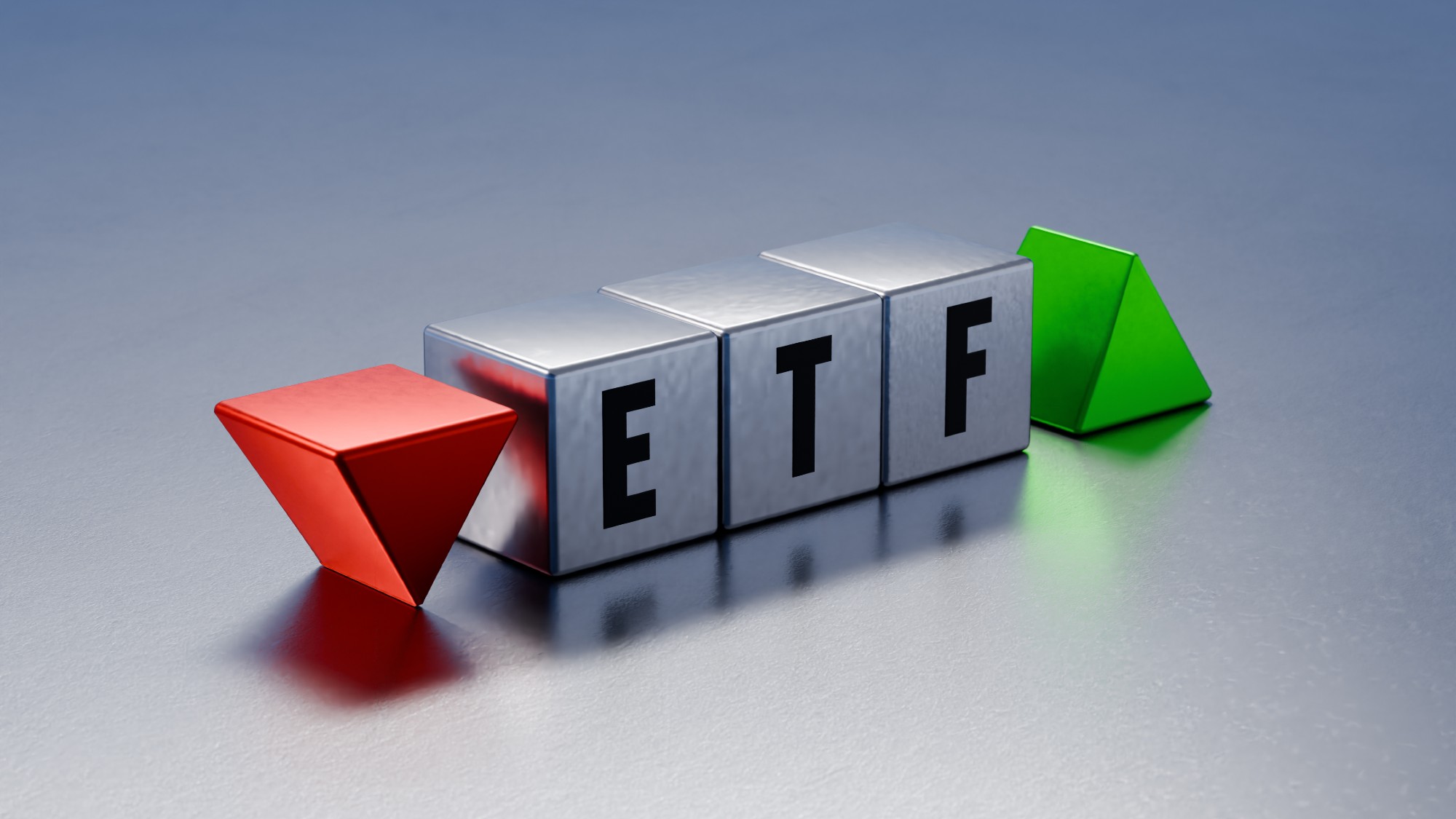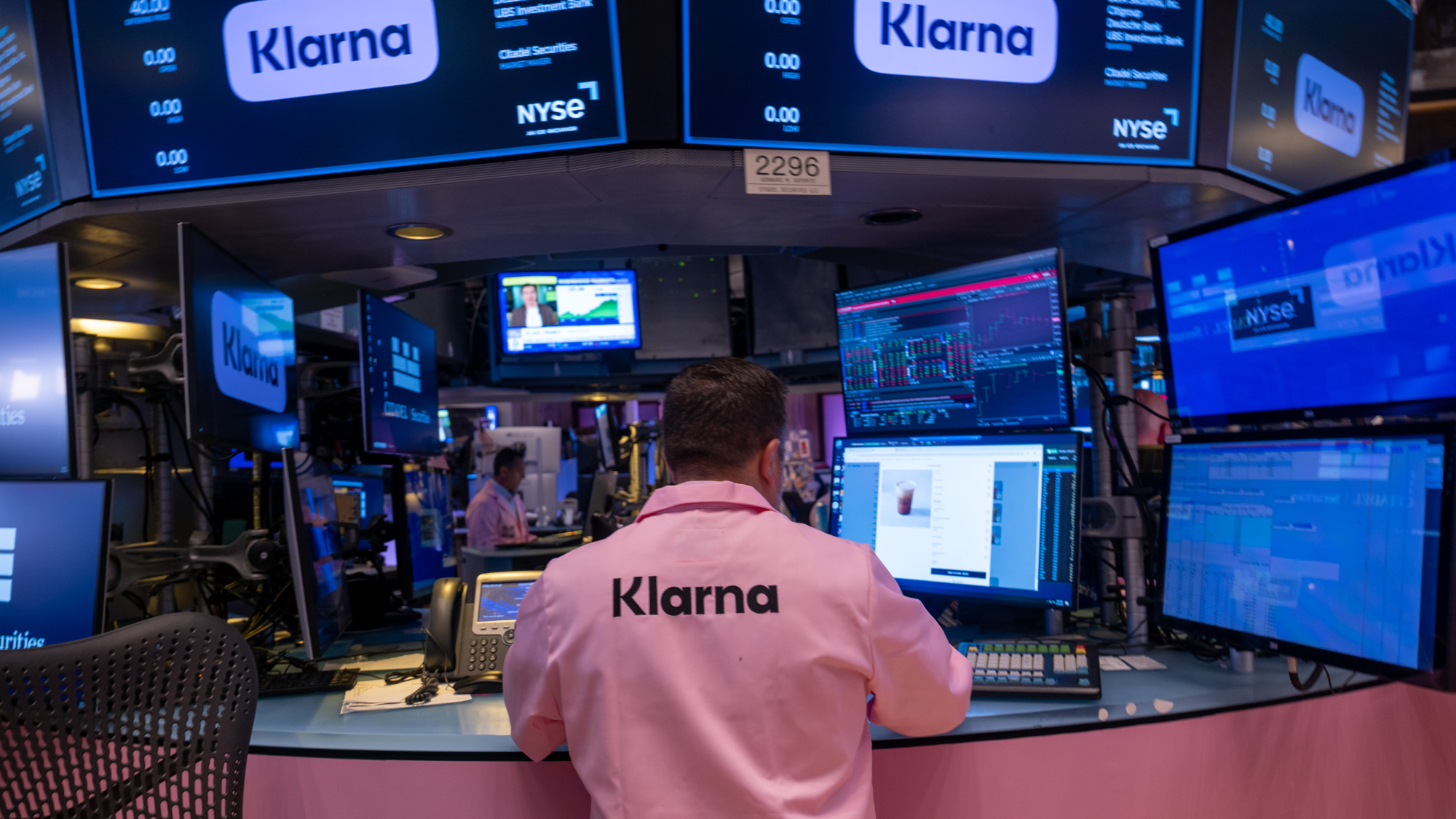How to invest in the artificial intelligence boom
Artificial intelligence is the biggest trend in technology, but there are fears that companies are overvalued

A free daily email with the biggest news stories of the day – and the best features from TheWeek.com
You are now subscribed
Your newsletter sign-up was successful
Artificial intelligence (AI) is changing the way people live and work. But while there may be fears the technology could spark job losses, there are also investment opportunities.
AI is the “hottest area of technology”, said Fidelity, and many investors are keen to gain exposure to it.
Fortunately, there are numerous avenues for those looking to invest in this way. But there are also numerous risks.
The Week
Escape your echo chamber. Get the facts behind the news, plus analysis from multiple perspectives.

Sign up for The Week's Free Newsletters
From our morning news briefing to a weekly Good News Newsletter, get the best of The Week delivered directly to your inbox.
From our morning news briefing to a weekly Good News Newsletter, get the best of The Week delivered directly to your inbox.
How to invest in AI
A substantial number of options are available for those who want to invest in AI, with many companies developing and producing AI technology across various sectors. Some may be listed on stock markets such as the Nasdaq and the S&P 500.
One of the biggest is semi-conductor chip maker Nvidia, which controls the majority of chip sales with its hardware and software ecosystem.
There are hundreds of AI stocks, said IG, but the market is dominated by a “handful of US blue chips” such as Microsoft, Google, Meta and Tesla.
Investors don’t need to be a “tech expert or spend hours digging through company reports to join this trend”, said Barclays Smart Investor.
A free daily email with the biggest news stories of the day – and the best features from TheWeek.com
Options include investing through a professionally managed fund or exchange-traded fund focused on AI and technology, “which can spread your money across a range of companies from major players in global tech to smaller, fast-growing innovators.”
Is AI a good investment?
AI could “impact every sector”, said Hargreaves Lansdown, such as helping with diagnosing diseases or offering bespoke retail advertising tailored to each consumer, which has “investors excited about their prospects”.
The “scale of the opportunity” has become a “major driver” for investing in AI, said Saxo.
The AI market is expected to be worth more than $826 billion (£621 billion) by 2030, the multi-asset platform added, “reflecting robust adoption across various industries”.
The risks of AI
The “market impact” of AI has been massive, said Trustnet, with major players such as Google, Meta, Amazon, Microsoft and Nvidia helping double the value of the Nasdaq since the launch of ChatGPT in November 2022.
But investors are “growing increasingly concerned” about AI stocks being a bubble that could be about to burst.
Jamie Dimon, the CEO of JP Morgan, along with the Bank of England, are among the latest to warn that the stock market is “saturated with AI megacaps”, said MoneyWeek.
This would be poor timing in the UK, said Politico, with chancellor Rachel Reeves rumoured to be planning cuts to the cash ISA allowance to “push Britain’s savers into the stock market”.
Investors need to see a return from AI stocks, added Hargreaves Lansdown, and there is “evidence of herd mentality” where consumers put money into shares in fear of missing out, “rather than because of company prospects”.
It is important to “understand the specific risks of a fund or trust” and check that its objectives align with yours.
Investment is often risky, and there is a lot of uncertainty as the technology is still developing. As such it is important to do your research, and only invest in companies with a “proven track record of success in the AI space”, said Unbiased.
Marc Shoffman is an NCTJ-qualified award-winning freelance journalist, specialising in business, property and personal finance. He has a BA in multimedia journalism from Bournemouth University and a master’s in financial journalism from City University, London. His career began at FT Business trade publication Financial Adviser, during the 2008 banking crash. In 2013, he moved to MailOnline’s personal finance section This is Money, where he covered topics ranging from mortgages and pensions to investments and even a bit of Bitcoin. Since going freelance in 2016, his work has appeared in MoneyWeek, The Times, The Mail on Sunday and on the i news site.
-
 Political cartoons for February 15
Political cartoons for February 15Cartoons Sunday's political cartoons include political ventriloquism, Europe in the middle, and more
-
 The broken water companies failing England and Wales
The broken water companies failing England and WalesExplainer With rising bills, deteriorating river health and a lack of investment, regulators face an uphill battle to stabilise the industry
-
 A thrilling foodie city in northern Japan
A thrilling foodie city in northern JapanThe Week Recommends The food scene here is ‘unspoilt’ and ‘fun’
-
 Received a windfall? Here is what to do next.
Received a windfall? Here is what to do next.The Explainer Avoid falling prey to ‘Sudden Wealth Syndrome’
-
 What’s the difference between a bull market and bear market?
What’s the difference between a bull market and bear market?The Explainer How to tell if the market is soaring or slumping.
-
 Is it a good investment to buy a house?
Is it a good investment to buy a house?The Explainer Less young people are buying homes, opting to rent and invest in the stock market instead
-
 What is day trading and how risky is it?
What is day trading and how risky is it?the explainer It may be exciting, but the odds are long and the risks high
-
 What to know about investing in ETFs
What to know about investing in ETFsThe Explainer Exchange-traded funds can be a great choice for beginners
-
 Retail investors drive a flurry of IPOs
Retail investors drive a flurry of IPOsFeature After years of slowness, companies like Klarna and Gemini are reviving the IPO market
-
 Is hands-off investing the way to go?
Is hands-off investing the way to go?The Explainer In many cases, your money might be better off left alone
-
 What to know before turning to AI for financial advice
What to know before turning to AI for financial advicethe explainer It can help you crunch the numbers — but it might also pocket your data